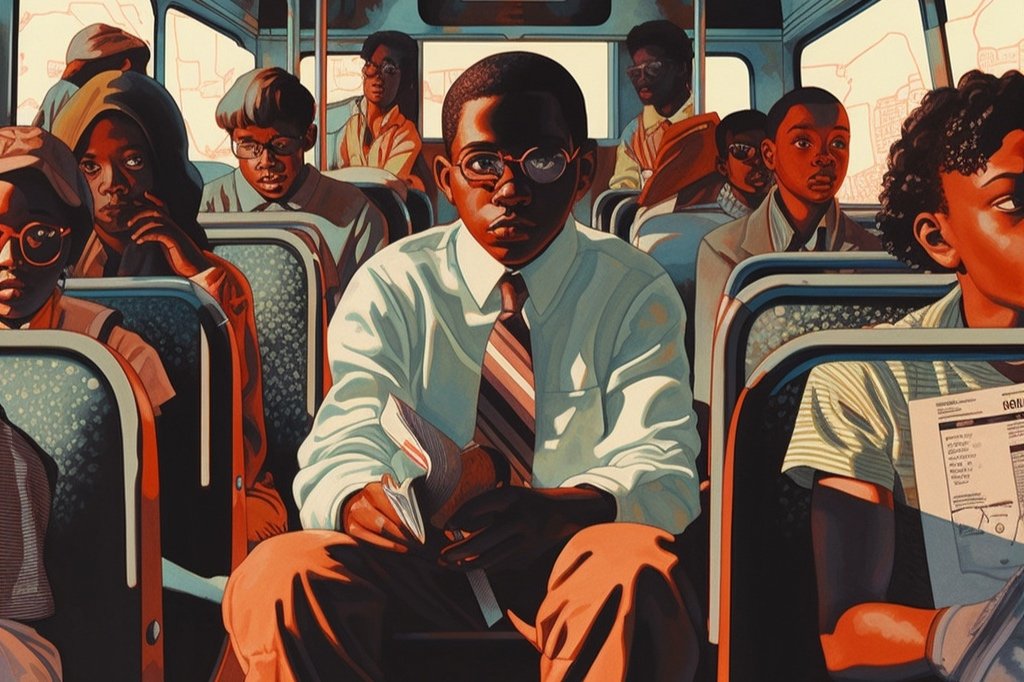Mind Games: How DISD's Misguided Mental Health Strategy Fails Black Youth
Progressive Judges and DISD leaders like Judge Clay Jenkins and Dr. Elizalde are heavily relying on prescription drugs for student behavioral issues, neglecting deeper problems.
The approach fails Black students, especially from challenging backgrounds, by not providing necessary moral and community values.
DISD’s $2 billion Annual budget is misused on external mental health professionals rather than effective educational reform.
Parks and Recreation FACILITIES could play a key role in community-based solutions. The current system disregards the genuine development of Black students, focusing on maintaining a financially beneficial status quo.
Unmasking DISD’s Destructive Approach
In a brazen move, figures like Judge Clay Jenkins and Dr. Elizalde from DISD are pushing for mental health evaluations that dangerously lean on prescription drugs as a panacea for student behavioral issues. This superficial fix blatantly ignores the deeper, underlying struggles that many at-risk students face.
The Crux of the Issue: Overlooked Needs of Black Students
The heart of the problem lies with Black children, particularly those from broken homes, who are being denied the foundational values and community spirit essential for holistic development. DISD is alarmingly oblivious to this, opting instead to funnel property tax funds into superficial solutions like hiring external mental health professionals. These professionals, often disconnected from the community’s realities, are quick to prescribe mood stabilizers, forcing students into a passive role in their education.
When it comes to the wellbeing of our kids, especially Black children from tough backgrounds, it’s clear we’re facing a serious challenge. These kids are often being handed a raw deal. Instead of getting the real support they need, they’re too often just given pills by professionals who don’t really get what they’re going through. What’s worse, sometimes our own folks, parents, and grandparents, might not see the full picture either. They might think they’re helping, but without the right guidance and understanding themselves, they might unknowingly be part of the problem. We need solutions that truly understand and address the struggles these kids face, not just quick fixes that don’t deal with the real issues.
A Failing System: Misuse of Funds and Misguided Priorities
DISD’s handling of its enormous budget, over 2 billion dollars, is a glaring example of mismanagement. Instead of channeling these funds into meaningful educational reform, they are squandered on costly psychiatrists and psychologists, who are more likely to diagnose and medicate than to understand and nurture.
In the context of DISD’s budget mismanagement, the hiring of psychologists and psychiatrists, who often lack a connection with Black communities, is particularly troubling. This practice can lead to harmful outcomes due to a lack of cultural understanding and a tendency to diagnose and medicate rather than truly comprehend and support the unique needs of Black children. It’s imperative that professionals with a direct connection to and understanding of the Black community are prioritized for treating mental health challenges in these children, ensuring culturally sensitive and effective care.
The problem is that when we bring this up, the system of government education states that they can only provide better results with more funding. This is why we call it a grift because if the objective was really to solve the problem then the funding would go to people closest and most concerned with the ideological issues at hand.
The True Solution: Community-Based Mentorship and Programs
The real answer to this crisis lies within the community itself. We must channel funds into after-school programs and mentorship initiatives led by community figures that students can relate to and respect. These programs should focus on providing the mentorship and guidance crucial for navigating the challenges these children face.
In addressing the crisis facing Black children in our community, it’s vital to refocus our efforts on foundational moral guidance. This need has become more pronounced as churches and spiritual centers, once core to instilling moral values, face depletion due to the strict separation of church and state. The resultant void has left government schools functioning as impersonal, calculation-driven systems, lacking a moral compass essential for addressing the specific challenges of the Black community. To counter this, there’s a pressing need to direct funds towards after-school programs and mentorship initiatives. These initiatives, led by relatable and respected community figures, should aim to provide the mentorship and guidance our children need, ensuring they navigate life’s challenges with a strong ethical foundation. This holistic approach in nurturing our children is crucial in building a well-rounded, morally grounded future generation.
The Role of Parks and Recreation: A Beacon of Hope
An unexpected yet potent ally in this struggle is the Dallas Parks and Recreation, which in all irony has the LEAST funding from the government. Despite receiving a fraction of DISD’s budget, they are at the forefront of offering practical, community-based solutions. Renaming it to Parks and Rejuvenation would better reflect its role in rejuvenating the lives of those left behind by DISD.
The harsh truth is that DISD, under its current administration, shows little regard or success for the genuine development of Black students. Their focus is not on imparting essential life skills like conflict resolution or negotiation, but on maintaining a status quo that benefits them financially, at the cost of the community’s wellbeing.
It’s time for a radical shift in how we approach the education and development of our Black youth. The solution is deceptively simple: redirect funding to places where it can make a real difference. This means supporting daily and weekly programs that offer guidance and mentorship, rather than sedating our children into compliance.

